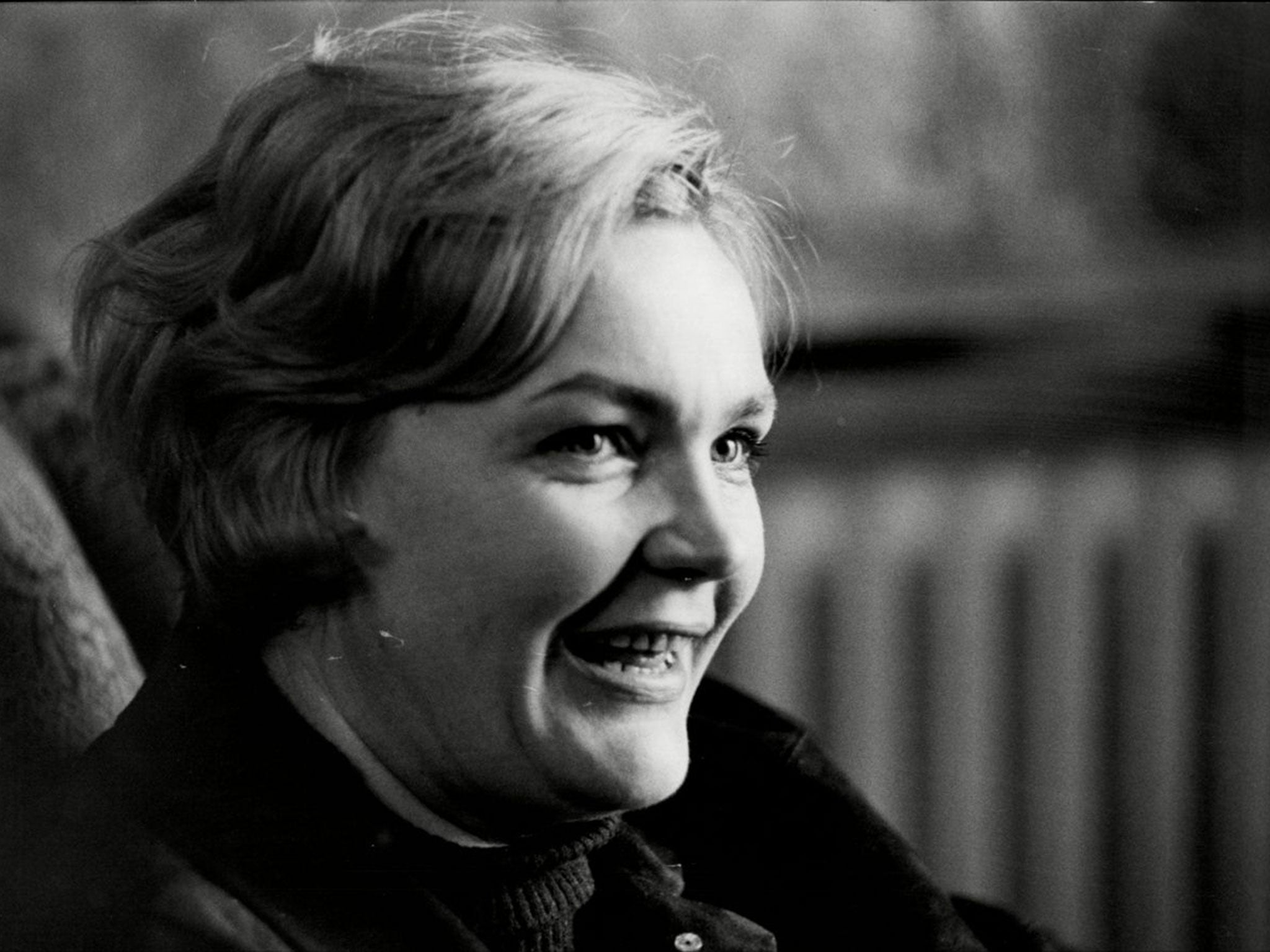Ludmila Dvorakova: Renowned Czech soprano who revelled in Wagner and sang leading roles from the Met to Covent Garden
Dvorakova was awarded the Antonin Dvorak Prize, presented by the Czech Academy of Classical Music to people who promote Czech music

Tall, willowy and beautiful, the Czech soprano Ludmila Dvorakova – who has died in a house fire in Prague, aged 92 – was not a typical Brünnhilde, as personified perhaps by Gerard Hoffnung and other cartoonists; and yet this was a role she made very much her own, appearing in Die Walküre, conducted by George Solti, at Covent Garden in 1966.
She was born in Kolin, near Prague, in 1923, and studied at the Prague Conservatoire. Dvorakova was intending to be a pianist or violinist, but soon turned to singing, studying with Jarmila Vavrdova from 1942 to 1949. She made her operatic debut in 1949 at Ostrava, singing the title role in Janacek's Kát'a Kabanová. Further title roles followed in Jenufa, Rusalka and Aida –and she played Countess Almaviva in The Marriage of Figaro and Leonore in Il Trovatore.
As Dvorakova pointed out in an interview in 2014 (on the release of a CD of her landmark recordings), "At the time, Czech operas were scarcely staged beyond Czechoslovakia." She studied 13 Czech roles, though later, abroad, she had the opportunity in concert and recital to sing songs by Smetana (in Berlin), Martinu and Janacek (in Paris) and Smetana and Dvorak (in Washington). She also sang Dvorak's Biblical Songs with the London Philharmonic in London. "Apart from that, I only sang Kostelnicka – first in Geneva in Czech, then in Hanover, Stuttgart and Vienna in German, and in the meantime, once in Brno, again in Czech."
It was Wieland Wagner, the composer's grandson, who invited her to Bayreuth, where for six seasons, from 1965, she sang first Gutrune, then Venus (Tannhäuser), Brünnhilde, Kundry (Parsifal) and Ortrud (Lohengrin). Bayreuth was very much to her taste, not only the theatre and its acoustic, but the long time for preparation and rehearsal: "The soloists are surrounded by Wagner's music from morning till night, with instrumental music and songs being heard from every window. The milieu is perfect for concentrated study."
Dvorakova had already sung Brünnhilde at the Berlin Staatsoper, which she joined in 1960, following work in Bratislava (1952-54) and Prague (1954-60), during which period she began to take on heavier roles, such as Leonore (Fidelio), Oktavian, Ariadne, Tosca, and the Marschallin.
Dvorakova had originally imagined that she was destined for the Italian repertory; but she had to abandon these lyrical parts when the demand for her voice in the heavier German roles became so great. Nevertheless, she always felt that the lyric roles were right for the development of her voice during those early years.
In 1966 she made her first appearances at the Metropolitan – as Leonore, which she regarded as her favourite role and sang more than 170 times – and at Covent Garden, as Brünnhilde in Die Walküre. At the Metropolitan she sang in both the old and new houses: "Compared to the old building, the comfort is much greater, the space is much larger, and the acoustics brilliant. But the history cannot be repeated," she said.
At Covent Garden she was an "exciting new Brünnhilde", amply satisfying both eyes and ears, according to the critics. Hans Hotter's production, conducted by Georg Solti, concentrated on characterisation – and Dvorakova, encouraged by her work with Wieland Wagner, presented Brünnhilde as a girlish warrior, an interpretation that she felt suited her personality.
In Die Götterdämmerung, "She sang out splendidly with a wealth of radiant, expressive tone; and she gave Brünnhilde a wide range of logically developing moods, never angry … but deeply wounded, a pitiably persecuted woman who derived her great heroism ultimately from her triumph over weakness."
Also at Covent Garden, with Solti conducting, she sang Isolde in Tristan und Isolde in 1971 and Leonore ("marvellously intense") in a production of Fidelio conducted by Colin Davis later the same year.
In 1974, with the Berlin Staatsoper, she sang the title role in Lysistrata, the one-act "comic concert opera" by the Hungarian composer Emil Petrovics, in East Berlin, for the annual series of Festival Days. Despite her "powerfully dramatic soprano voice plus youthful, slim good looks", it was felt that she could not quite summon up the appropriate degree of earthiness demanded by the part.
Her middle register was always her best and later in her career she took on mezzo roles such as Herodias (Salome) and Kostelnicka (Jenufa). She retired from singing in 1985, received a Thalia Award (Czech) in 2002 – and in 2012 was awarded the Antonin Dvorak Prize, presented by the Czech Academy of Classical Music to individuals who promote and popularise Czech music.
GARRY HUMPHREYS
Ludmila Dvorakova, operatic soprano: born Kolin, Czechoslovakia 11 July 1923; married 1950 Rudolf Vasata (died 1982); died Prague 30 July 2015.
Join our commenting forum
Join thought-provoking conversations, follow other Independent readers and see their replies
Comments
Bookmark popover
Removed from bookmarks